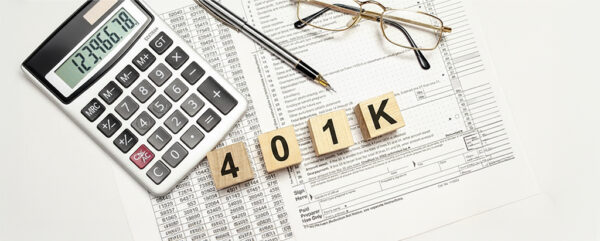
Early 401(k) withdrawals are soaring.
According to the Vanguard Group, “A record-breaking number of Americans are making emergency withdrawals from their 401(k) retirement plans in order to cover a financial hardship amid the ongoing inflation crisis.”¹
Approximately 3.6% of workers participating in employer-sponsored 401(k) plans made early 401(k) withdrawals in 2023, higher than the 2.8% in 2022.²
The report found that “about 40% of individuals who dipped into their 401(k) last year did so to avoid foreclosure — up from about 36% in 2022.”³
While early 401(k) withdrawals may solve the problem today, they may create bigger problems in the future.
For example, a Capitalize survey found that “early withdrawals from 401(k) retirement funds cost Americans $6.12 billion in penalties” in 2023.⁴
Keep reading to see why early 401(k) withdrawals may hurt your financial future and how to avoid pulling funds from your 401(k) before retirement.
Why Early 401(k) Withdrawals May Hurt Your Retirement

To withdraw funds from your 401(k) without facing penalties, the IRS says you need to be 59½ years old.
If not, you will be hit with a 10% penalty. This is on top of the 20% automatic withholding for taxes.
Not only do penalties hurt you, but withdrawing early means you miss out on potential growth.
When you contribute to a 401(k), your money earns interest, which compounds over time – meaning you earn returns on your returns.
The longer your money is invested, the more it can grow.
Should you pull from your 401(k) early, you risk missing out on that compounding effect and potential growth.
This can have a significant impact on your retirement savings over time.
Research conducted by Employee Benefit Adviser shows, “A hypothetical 30-year-old participant who cashes out a 401(k) savings balance of $5,000 today would forfeit up to $52,000 in earnings the sum would have accrued for them by age 65, if we assume the account would have grown by 7% per annum.”⁵
Early withdrawals may also put your financial future at risk.
According to the Center for Retirement Research at Boston College, early withdrawals reduce overall 401(k) assets for retirement by 25% on average.⁶
Retirement is getting increasingly expensive.
You will need every penny you have saved to ensure you live well in your retirement years.
While it may be a quick fix today, you could be doing incredible harm to yourself in the future.
Common Reasons for Early Withdrawals and How to Avoid Them

Financial pressure often leads people to take early 401(k) withdrawals.
According to Vanguard, “In 2022, 36% of hardship withdrawals were used to avoid a home foreclosure or eviction, up from 31% of withdrawals in 2021. The second most common reason was medical expenses, as 1 in 3 hardship withdrawals were initiated for this purpose, in line with 2021.”⁷
When the bills are piling up, it is tempting to take from your retirement savings for tomorrow to cover costs today.
The best way to protect yourself and your finances is to build up a solid emergency savings fund.
When financial emergencies occur, you have a safety net.
When it comes to medical expenses, make wise decisions regarding insurance before something happens or someone receives a diagnosis.
If you dip into your retirement savings every time you have debt, you will find yourself in a vicious cycle.
Instead, when tempted to use your 401(k) to pay down debt, strive to follow a debt repayment model that involves spending less.
It’s becoming wise to have multiple income sources.
This will prove helpful should you find yourself unemployed.
Look for investment opportunities and other income streams, such as side hustles.
Strategies to Safeguard Your 401(k) from Early Withdrawals

It’s one thing to tell you not to take an early 401(k) withdrawal.
You also need to know how to avoid being in a position where it’s a necessity to withdraw the money.
- Automate Savings to Avoid Temptation: Prioritize saving for retirement. It is way too easy to put off saving because retirement seems so far off. Don’t make this mistake! Automate your 401(k) savings and leave it alone.
- Create a Realistic Budget and Stick to It: Inflation is certainly hurting people, but it’s not the only reason they’re finding themselves in financial trouble. Some people overspend, whether on a too-high mortgage or too much spending. Avoid overspending by creating a realistic budget that factors in both saving for retirement and saving for emergencies.
- Build a Solid Emergency Fund: A common reason people take early withdrawals is that they face unexpected expenses, such as medical bills, relocation, or job changes. The best way to prepare for unexpected expenses is to build up an emergency fund. Factor emergency savings into your budget and have your bank take a portion of each paycheck and put it into a separate savings account.
Seek Financial Guidance from a Professional: There is no shame in asking for help. Before you take an early 401(k) withdrawal, speak with a financial advisor who can provide advice on how to turn your financial situation around without significantly harming your retirement savings.
Penalty-Free 401(k) Withdrawal Options When All Else Fails

In a few circumstances, the 10% early withdrawal penalty can be waived.
This is known as a 401(k) hardship withdrawal.
A hardship withdrawal is a withdrawal of funds from a retirement plan due to “an immediate and heavy financial need,” and, if you qualify, you usually don’t have to pay the penalty.
Situations that qualify for a hardship withdrawal:
- Medical bills for you, spouse, and dependents
- Money to buy a house
- Money to avoid foreclosure or eviction
- College expenses for you, spouse, or dependents
- Funeral expenses
- Disability
- Adoption purposes
- Disaster
- Military reservist
To qualify, you must prove you can’t get the money anywhere else, such as a loan or other savings account.
The administrator of the 401k will have to approve a 401(k) hardship withdrawal.
However, you will still have to pay 20% taxes, which is taxed as ordinary income even if you qualify for a hardship withdrawal.
[Related Read: The Real Impact of 401(k) Hardship Withdrawals]
Another option is a 401(k) loan.
A 401(k) loan allows participants to borrow from themselves and then pay themselves back with interest without paying penalties or taxes on the amount borrowed as long as it is paid back on time.
[Related Read: The Downside of 401(k) Loans: Investors Beware]
You will face hefty penalties if you fail to pay the 401(k) loan back on time.
Ultimately, a hardship withdrawal or a 401(k) loan should be treated as a last resort.
Do what you can to avoid treating your 401(k) like your personal bank account.
Have questions or concerns about your 401(k) performance? Book a complimentary 15-minute 401(k) strategy session with one of our advisors.
Sources:
-
- https://www.foxbusiness.com/economy/401k-hardship-withdrawals-surge-another-record-high-inflation-stings
- https://www.foxbusiness.com/economy/401k-hardship-withdrawals-surge-another-record-high-inflation-stings
- https://www.foxbusiness.com/economy/401k-hardship-withdrawals-surge-another-record-high-inflation-stings
- https://www.foxbusiness.com/personal-finance/early-withdrawal-surge-2023
- https://www.benefitnews.com/advisers/opinion/to-show-participants-you-care-help-them-avoid-401k-cash-outs
- http://crr.bc.edu/wp-content/uploads/2015/01/IB_15-2.pdf
.fb-background-color {
background: !important;
}
.fb_iframe_widget_fluid_desktop iframe {
width: 1100px !important;
}















